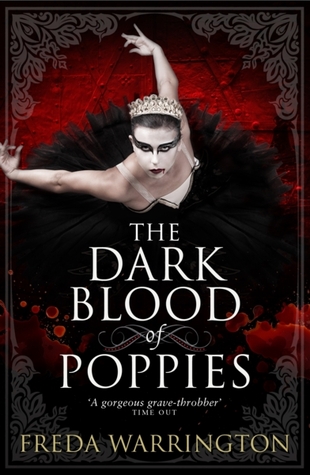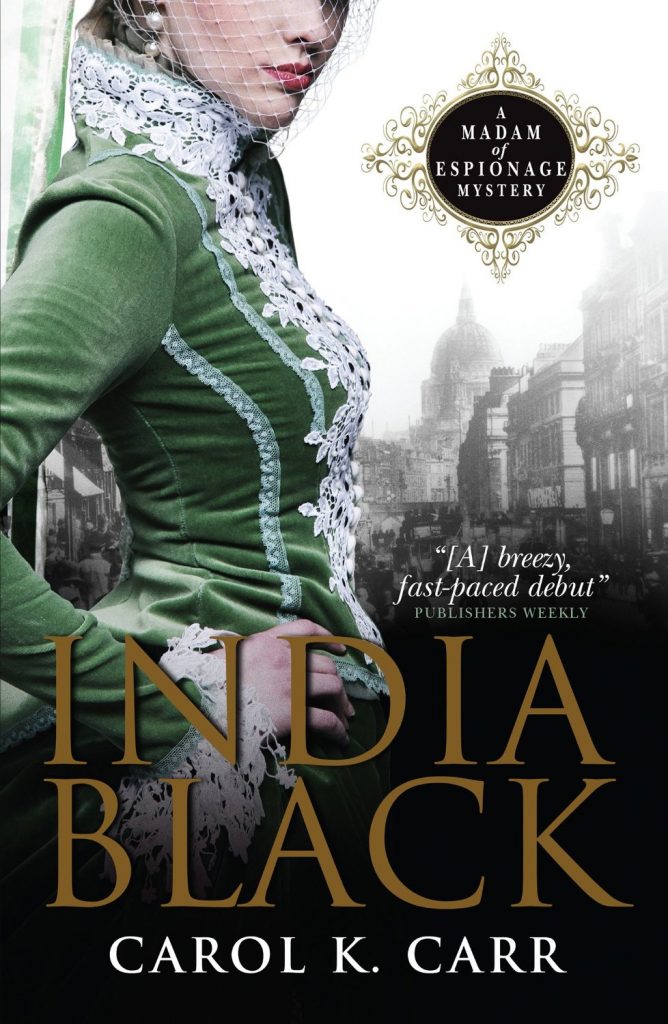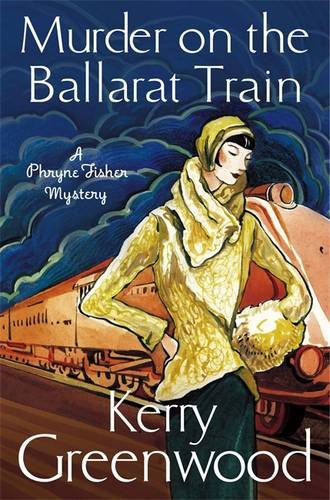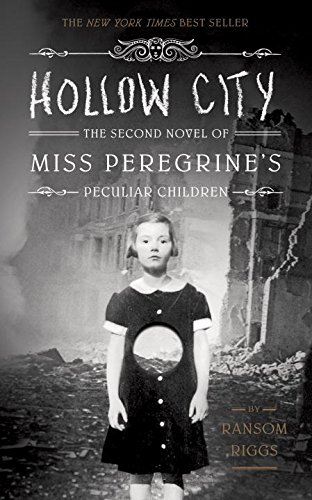Posted November 12, 2015 by Nicky in Reviews / 2 Comments
 The Dark Blood of Poppies, Freda Warrington
The Dark Blood of Poppies, Freda Warrington
However sceptical I am about the whole lush dark vampires thing, these books do captivate me. I love the way the mythology works: the way different people believe different things, and ultimately the way those beliefs shape the whole world. It’s not even really allegory — we really do that, in a way. I wasn’t so sure about her foray into Lilith and Samael and that sort of mythology, but actually, she handles that pretty well too, without forcing religiosity on the books. (In fact, that’s often a danger with her characters, something which blinds them to truth.)
And Warrington still does really well with these amoral, dreadful, detached and yet deeply emotional vampires. She does so well at making me see the monstrous in even the characters we sympathise with, and the human even in characters you want to despise. You get captivated by the power of the vampires and forget their atrocities, even without their magnetic presence to enforce it the way it is within the book. It takes skill.
I really enjoy Warrington’s writing, and really must look into her other series. But first: The Dark Arts of Blood! I’m so glad Titan reissued this series and brought out the next.
Rating: 4/5
Tags: book reviews, books, SF/F
Posted November 11, 2015 by Nicky in Reviews / 0 Comments
 The Great Zoo of China, Matthew Reilly
The Great Zoo of China, Matthew Reilly
Jurassic Park, but Chinese, there are journalists mostly rather than scientists, and the creatures are dragons. And it’s really not a cutting edge idea: even without Jurassic Park, there’s stuff like Marie Brennan’s A Natural History of Dragons and plenty of other things which have dragons being real and in a real-world setting. The writing wasn’t good enough to sell this idea to me again: I’d rather get round to finishing Jurassic Park, or reread Brennan’s books.
It’s not bad as a light thriller, but it feels definitely gimmicky, like a cash-in. Particularly since I started hearing buzz about it when Jurassic World came out.
One thing in its favour, though: a strong central female character. It’s not so great that apart from her scars she’s conventionally attractive — like the author thought oh, she still has to be pretty — but it is great that she has them, and that they’re a legacy of her actual work with actually relevant creatures.
Rating: 2/5
Tags: book reviews, books, SF/F
Posted November 10, 2015 by Nicky in Reviews / 0 Comments
 India Black, Carol K. Carr
India Black, Carol K. Carr
Picked this one up for a bit of light fun, which it provided. I’m not sure about the comparisons to Gail Carriger’s books — sure, the period is roughly the same and the covers have some commonalities, but Alexia is a lady and India is a mercenary whore (and I mean that literally, not pejoratively). The kind of humour is different — sharper, less light, often relying on India’s bitter attitude toward, well, almost everyone. Carriger does have Alexia being more intelligent than a lot of people, but she also has more interaction with other intelligent characters (including other women). The emphasis on romance is entirely lacking in India Black, too.
Still, as a quick romp with a bit of spy/thriller/mystery stuff going on, it’s quite fun. It’s in first person from the point of view of India herself, and she’s pretty sharp and cutting about the world, and knowing about the way things are. That gives her a pretty fun voice.
In terms of the plot… it’s not too tight, with a fair amount of coincidence and people just being stupid. It’s not bad for a light bit of fun, though.
Rating: 3/5
Tags: book reviews, books
Posted November 9, 2015 by Nicky in Reviews / 0 Comments
 Murder on the Ballarat Train, Kerry Greenwood
Murder on the Ballarat Train, Kerry Greenwood
Another fun outing with Phryne! This one ends with her adopting a couple of girls and goes through a bunch of stuff — a crime on a train, hypnotism, murder for an inheritance, mad criminals, etc. I’m not a fan of stories where the criminal turns out to be insane, even though it’s a classic: most crime is carried out by sane people, or certainly people whose mental disorders are not central to the deed. In fact, in the real world, it’s more common for a mentally ill person to be a victim of violence than the perpetrator. It doesn’t help that the whole hypnotism thing is a little too convenient — the hypnotist can get away with just about anything using hypnotism, here.
Still, it’s fun, and I love the found-family stuff at the end. I did predict some turns of the plot, but that’s not really what I’m reading this for anyway.
I don’t think Phryne has had the same lover in any of these books so far, either. I love that there seems to be no drive for her to change her ways, in the story: she’s a flapper, she’s Phryne, and people have to accept that. Don’t get attached to any of her young men!
Rating: 4/5
Tags: book reviews, books, crime, Kerry Greenwood, mystery
Posted November 8, 2015 by Nicky in Reviews / 0 Comments
 Cannonbridge, Jonathan Barnes
Cannonbridge, Jonathan Barnes
In some ways, I think the ending of this book spoiled the build-up. Unlike a lot of other readers, I found the build-up quite interesting, especially the mounting uncanniness. There were only a few authors I didn’t know mentioned in the story, though it took me a few moments to identify some of them when they appeared as characters. The whole conspiracy, the sense of mystery — it worked well for me, and I found the figure of Cannonbridge interesting, especially in his earlier appearances.
I was less enamoured of what, in the story, gives rise to him: I’d rather he was unexplained than this rather heavy-handed Money Is Bad stuff at the end. And I’m not sure about the way the final chapter goes, either — the revelation about a particular character, the meta-fiction there. It doesn’t feel right. It’s like two elements are sitting awkwardly together in this book, at least for this reader. I can certainly understand why others have found it so disappointing.
Rating: 3/5
Tags: book reviews, books, mystery, SF/F
Posted November 7, 2015 by Nicky in Reviews / 0 Comments
 Moon-Flash, Patricia McKillip
Moon-Flash, Patricia McKillip
Apparently Moon-Flash actually has a sequel, but I’m not that interested in it. It’s interesting — probably a novella in length, and written with McKillip’s usual lyricism and style — but I felt it was whole enough in itself, and I’m not interested enough in the world or characters to keep following it. Their trip down the river leads to an almost inevitable conclusion, but the story manages to say something about myth and belief, about the way different cultures interpret things, about relationships between cultures. It’s a little Ursula Le Guin-ish, in that sense, now that I think about it: I could picture her writing a very similar story.
It’s actually not as fantastical as the other works by McKillip I’ve read before, so that makes it interesting too in comparison to the magic of her other work. At the same time, that’s here too, under the surface, in the myth-making.
Rating: 3/5
Tags: book reviews, books, Patricia A. McKillip, SF/F
Posted November 6, 2015 by Nicky in Reviews / 10 Comments
 The Night Circus, Erin Morgenstern
The Night Circus, Erin Morgenstern
Originally reviewed 16th September, 2012
This book is an enchantment. From the very start it slowly catches you up in the circus itself. You can never imagine every inch of it, never know it, but you feel like a rêveur yourself, as if you’ve walked through the tents and tried the food and smelt the popcorn and chocolate mice and fire and all the strange perfumes of the circus. I think it’s that, more than anything, that made me love this book so much: I was interested in the fate of Celia and Marco, but mostly because it impacted the circus, and I couldn’t stand the idea of anything bad happening to the circus.
I did get caught up in the other parts of the plot too, don’t get me wrong: I loved the references to Merlin, which sort of clued me in on where certain things were going; I liked a lot of the characters, especially the ones with secrets; I loved all the details, and how they all came together.
Possibly this is not quite a five star book, compared to some of the other books I’ve rated five stars, but it swept me off my feet, so I’m giving it five stars anyway. I found it magical — and I’m keeping a copy around, because I think I’ll reread it someday.
Rating: 5/5
Tags: book reviews, books, Erin Morgenstern, Flashback Friday
Posted November 5, 2015 by Nicky in Reviews / 0 Comments
 Flying Too High, Kerry Greenwood
Flying Too High, Kerry Greenwood
Pretty much binging on this series at the moment, I have to admit. As I write up this review, I’m already two books ahead. I find the books so readable, and since each one has clocked in under 200 pages so far, they’re not a huge time investment. Phryne is a lovely character: independent, smart, fearless, honest and true to her own principles — and non-judgemental of others.
I don’t really have much to say about the plots: these books remind me of Sayers’ mysteries, where what I care about is more the characters and how they deal with the situation. Phryne is a little too good to be true, but I want to see what she does anyway. She has a spark and a love of life that animates the novels for me. I hear Essie Davis does a great job with the character in the series, so I’m quite excited to get round to it on Netflix. Just… you know… me being me, excitement still might mean it takes me another year to get to. (Sorry, Charlie Cox-as-Daredevil.)
Rating: 4/5
Tags: book reviews, books, crime, Kerry Greenwood, mystery
Posted November 4, 2015 by Nicky in Reviews / 0 Comments
 Dark Entries, Robert Aickman
Dark Entries, Robert Aickman
This collection of stories mostly did not creep me out, despite the accolades of being a great horror writer. But they were certainly strange stories, as Aickman himself preferred to call them. There’s a great atmosphere in some of them, and his writing is careful and precise. Somebody else described the atmosphere in some of the stories as “reality out of joint”, and that’s definitely true — for these characters, ostensibly belonging to our normal world, something jolts out of place and everything is made strange by it. Even some quite mundane details can become more threatening in that atmosphere.
I’m not in a wild hurry to read more of Aickman’s work, but I wouldn’t say no, either — maybe I’ll pick up more of it from the library, and give his novels a try.
Rating: 3/5
Tags: book reviews, books
Posted November 3, 2015 by Nicky in Reviews / 6 Comments
 The Hollow City, Ransom Riggs
The Hollow City, Ransom Riggs
I don’t think I have much to add with this book that I didn’t already say when it came to the first book. The juxtaposition of the vintage photography and the story works pretty well, even if the story rather demystifies the photographs by giving them explanations. The pacing is rather less glacial here, because the waiting’s over — a plot is in motion and the children have to keep moving, no matter what.
A little annoyingly, the books lead straight on, one from the other. You ideally need the next one on hand right away. My library doesn’t have the next book yet, so I can’t do that. There’s very little closure to make it feel like a natural ending — just, bam, another crisis, another problem, and… what now?
Well, I do want to find out, but if I have to wait, I’ll probably start forgetting details and get confused when I try to read the next one.
Rating: 4/5
Tags: book reviews, books, SF/F
 The Dark Blood of Poppies, Freda Warrington
The Dark Blood of Poppies, Freda Warrington

 India Black, Carol K. Carr
India Black, Carol K. Carr





